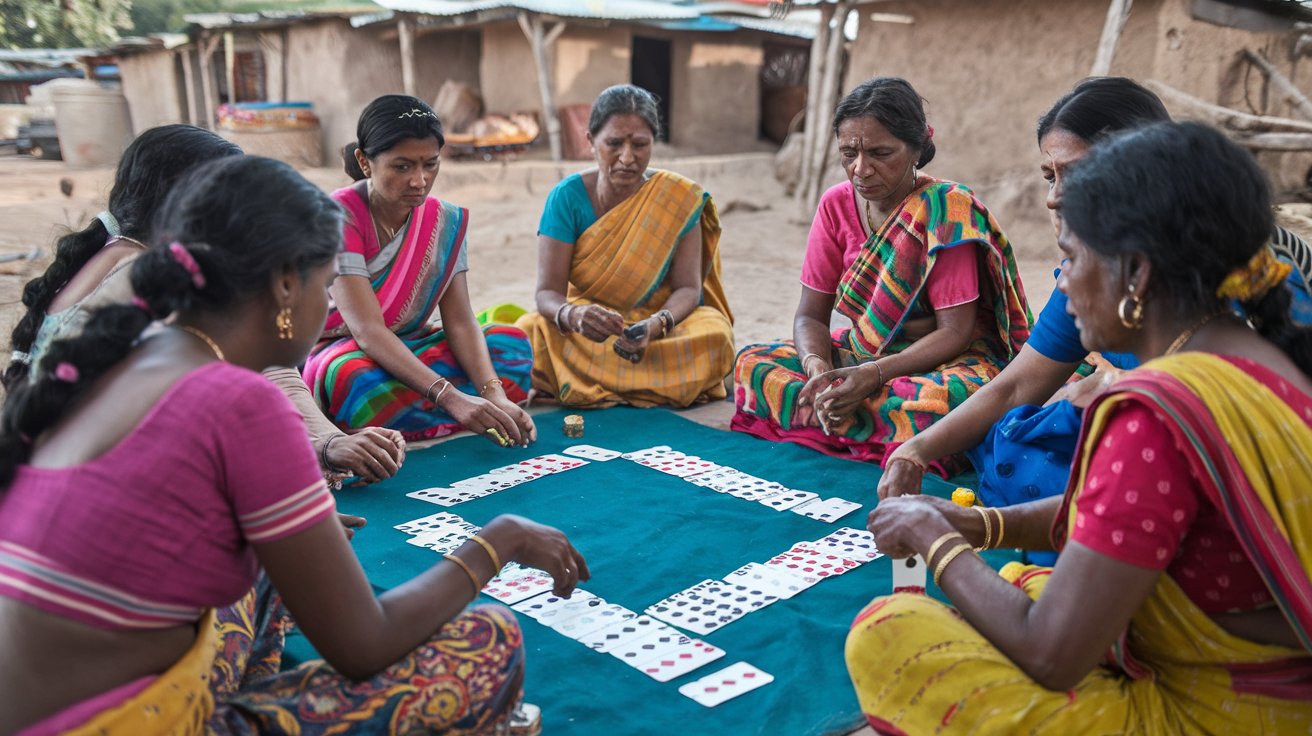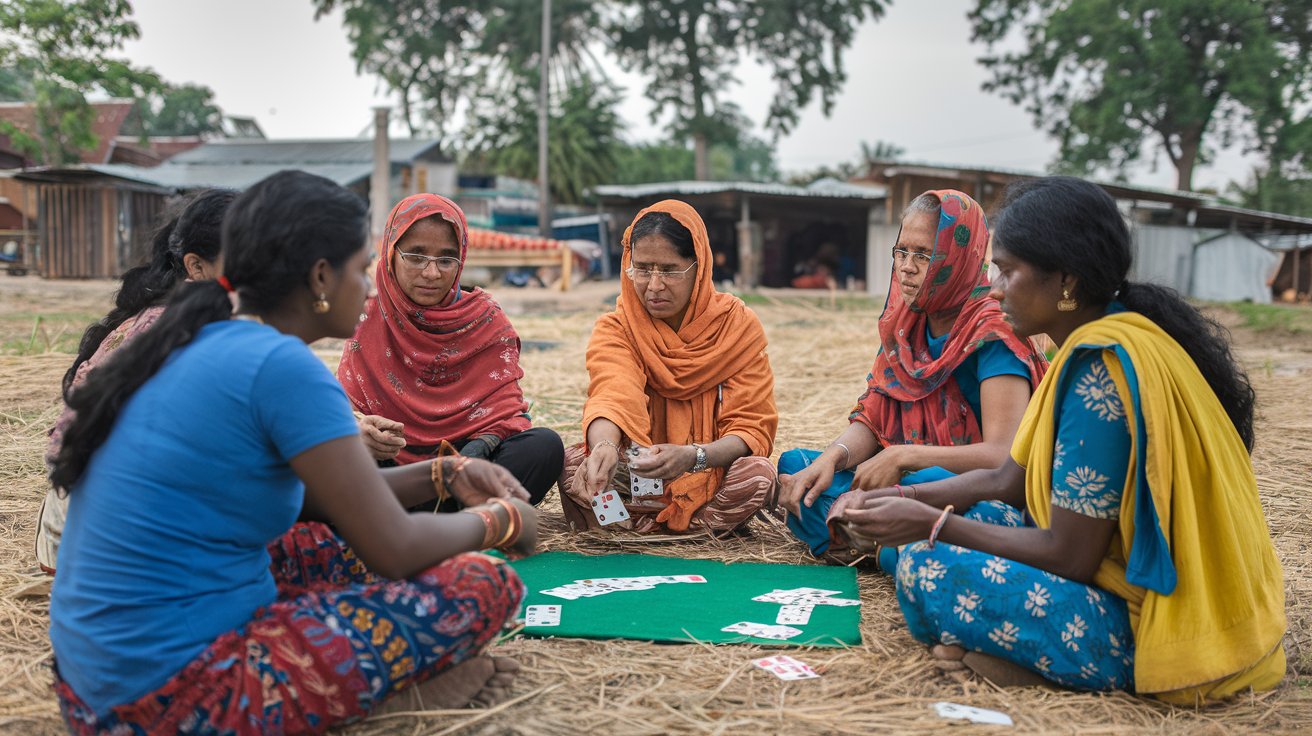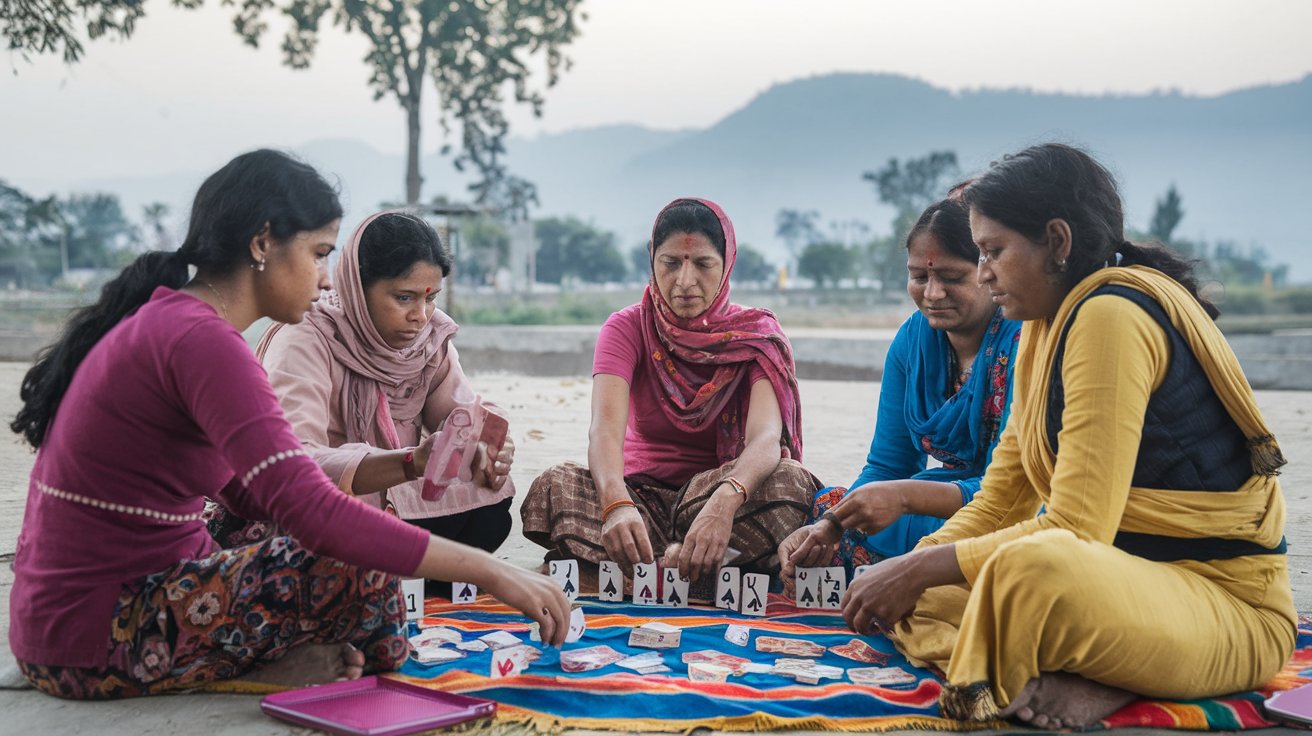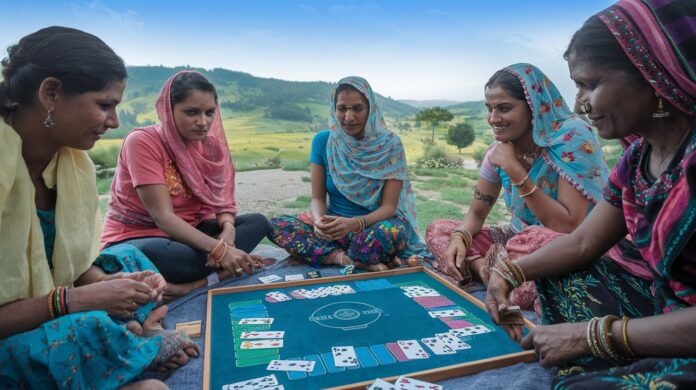Rummy, a card game rooted in skill, strategy, and a dash of luck, has long been a beloved pastime in India. From casual family gatherings to competitive online platforms, its popularity has soared in recent years. But behind this cultural phenomenon lies an often-overlooked force: women. Indian women, across generations and demographics, have played a pivotal role in not just embracing rummy but also in driving its widespread appeal. This blog explores how women have shaped the game’s journey in India, breaking stereotypes, fostering community, and even influencing its digital evolution.
A Game Woven into Tradition

Rummy’s history in India stretches back decades, intertwined with the country’s rich tradition of social games. Known as “Paplu” or “Teen Patti” in some regions, rummy found its way into households as a staple during festivals like Diwali, family reunions, and even lazy Sunday afternoons. While men often dominated public gaming spaces, it was women who kept the game alive within the home.
Picture this: a group of aunts, mothers, and grandmothers gathered around a table, shuffling cards with practiced ease, laughing over a clever meld or teasing someone for a risky discard. For many Indian women, rummy wasn’t just a game—it was a bonding ritual. It offered a space for storytelling, friendly rivalry, and connection in an era when social opportunities for women were limited. By passing down the rules and strategies to their children and grandchildren, these women ensured rummy remained a cultural heirloom.
Why It Matters: This intergenerational transfer didn’t just preserve rummy; it embedded it into the Indian psyche, making it a household name long before the internet age.
Breaking Stereotypes: Women as Skilled Players
Historically, gaming—especially card games—carried a stigma in India, often associated with gambling or male-dominated spaces like roadside tea stalls. Yet, women defied these norms. Far from being passive participants, they mastered rummy’s nuances, turning it into a showcase of intellect and patience.
Take the example of rural India, where women in small towns and villages organized rummy circles. These weren’t high-stakes gambling dens but community-driven events where skill trumped chance. Women players honed their ability to read opponents, calculate probabilities, and strategize—skills that rivaled those of any professional. In urban settings, too, women hosted “kitty parties” where rummy was a centerpiece, blending socializing with competitive play.
This shift challenged the notion that card games were a man’s domain. Women proved that rummy wasn’t about luck alone; it was a mental exercise, a battle of wits. Their involvement helped reframe the game as respectable and family-friendly, broadening its appeal.
SEO Tip: Keywords like “women rummy players India,” “rummy skills,” and “card games for women” naturally fit here, boosting search visibility.
The Digital Revolution: Women Take Rummy Online

Fast forward to the 21st century, and rummy has found a new home—online platforms. With smartphones in hand, millions of Indians now play rummy on apps like RummyCircle, Junglee Rummy, and Ace2Three. And guess who’s leading the charge? Women.
The rise of online rummy has been a game-changer for Indian women, offering accessibility and flexibility that traditional settings couldn’t. A busy homemaker in Mumbai can now play a quick round between chores. A college student in Delhi can join a tournament from her dorm. A working professional in Bangalore can unwind after a long day with a few hands. The anonymity of online platforms also removes social barriers, allowing women to compete without judgment.
Data backs this up. According to industry reports, women make up a significant portion of online rummy players in India—some platforms estimate nearly 40% of their user base is female. This isn’t surprising when you consider the game’s appeal: it’s skill-based, engaging, and offers a sense of achievement. Plus, the chance to win cash prizes doesn’t hurt!
Real-Life Impact: Stories abound of women turning their rummy skills into side hustles. Take Priya Sharma (name changed), a 35-year-old mother from Chennai, who started playing online rummy during the pandemic. What began as a hobby soon became a source of income, with her winnings helping fund her daughter’s education. Such examples highlight how women are not just playing rummy—they’re redefining its purpose.
Women as Community Builders

One of rummy’s greatest strengths is its ability to bring people together, and women have been at the heart of this. In traditional settings, they organized games that strengthened family ties. In the digital age, they’ve taken this a step further by building online communities.
On platforms like X and Facebook, women share tips, celebrate wins, and form rummy groups. These spaces aren’t just about competition—they’re about camaraderie. Women host virtual tournaments, mentor new players, and even create content like blogs and videos to teach strategies. This sense of community has made rummy more approachable, especially for beginners hesitant to dive into a “serious” game.
Cultural Shift: By fostering inclusivity, women have helped rummy shed its old gambling stigma and emerge as a legitimate, skill-based pastime. Their influence has encouraged younger generations, including Gen Z girls, to pick up the game without fear of judgment.
The Economic Angle: Women and Rummy’s Growth
Rummy isn’t just a game anymore—it’s an industry. Online rummy platforms in India are projected to reach a market size of $1.4 billion by 2024, according to some estimates. Women have been instrumental in this boom, not just as players but as stakeholders.
Female influencers and content creators are promoting rummy apps, leveraging their social media reach to attract new users. Some women have even entered the entrepreneurial side, working with gaming startups or launching their own rummy-related ventures. Their participation has fueled innovation, from user-friendly app designs to women-centric tournaments with tailored rewards.
SEO Keywords: “Online rummy India,” “women in gaming industry,” and “rummy apps for women” work seamlessly here, targeting readers interested in both gaming and economic trends.
Overcoming Challenges
Of course, the journey hasn’t been without hurdles. Women playing rummy—especially online—sometimes face skepticism or moral policing. “Why waste time on cards?” or “Isn’t this gambling?” are questions they’ve had to answer. Yet, their resilience shines through.
Education has been key. Women advocate for rummy as a game of skill, not chance—a distinction upheld by Indian courts, which have ruled that rummy isn’t gambling when played strategically. By spreading awareness, they’ve helped legitimize the game and silence critics.
Safety concerns in online spaces also persist, but women have adapted. They choose reputable platforms with strong privacy measures and encourage others to do the same, ensuring rummy remains a positive experience.
The Future of Rummy: A Woman’s Game?
As rummy continues to evolve, women are poised to shape its future. With more female players joining the fray, we’re seeing calls for gender-specific features—think women-only tournaments, leaderboards, or even rummy apps designed with female aesthetics in mind. The game’s social aspect, which women have long championed, could also inspire new formats, like team-based rummy or charity events.
Moreover, women’s success in rummy could pave the way for broader acceptance of female gamers in India. From esports to mobile gaming, their influence might ripple across the industry, challenging the male-dominated status quo.
Inspiration for All: Imagine a young girl watching her mother win a rummy tournament online. That moment could spark a lifelong passion—or even a career. Women are not just popularizing rummy; they’re inspiring the next generation to embrace it.
Conclusion: Celebrating Women in Rummy
From the cozy corners of Indian homes to the fast-paced world of online gaming, women have been the unsung heroes of rummy’s rise in India. They’ve preserved its traditions, broken barriers, built communities, and driven its digital transformation. Their love for the game has turned it into more than just a pastime—it’s a cultural movement.
So, the next time you shuffle a deck or log into a rummy app, take a moment to appreciate the women who made it possible. They’ve dealt the cards, set the table, and ensured rummy remains a game for everyone. As India’s rummy revolution continues, one thing is clear: women aren’t just playing—they’re winning.
Call to Action: Are you a rummy enthusiast? Share your story in the comments or try your hand at an online game today. Who knows—you might just be the next big player!

Zareb Saleh is a journalist at Gulf Today and a ghostwriter for Gameoholic, specializing in gaming, technology, and digital culture. With a keen eye for industry trends, he delivers insightful stories that engage and inform readers.




